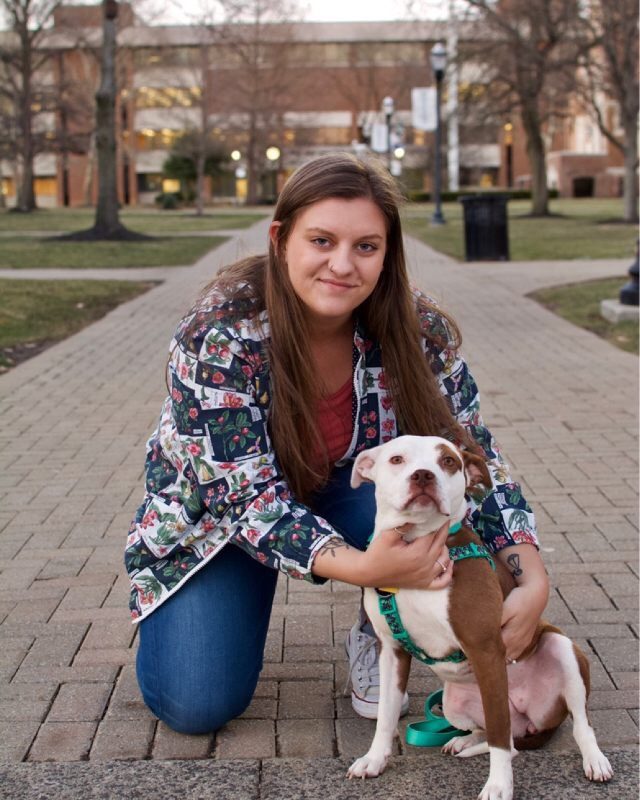Featured image courtesy of Isabelle Maurer)
A Capital student named Isabelle Maurer shared her experiences with having her emotional support dog on campus.
Maurer is a fourth-year Middle Childhood Education major at Capital, and her emotional support dog, Portabella (Bella), has lived on campus with her for over two years. Portabella, named after her mushroom shaped eye patch, is a 2-year-old pocket pitbull.
When asked what the biggest advantage of having Bella on campus with her is, Maurer said, “Being someone who has grown up with pets all my life, having Bella with me while at Capital made my experience so much better. Also, being someone who is diagnosed with GAD, generalized anxiety disorder, Bella helped me through both the highs and lows of my college experience.”
Pets that are considered ESAs do not need to go through specific training, making them different from service animals.
“Emotional support animals are meant to provide you emotional support within the home,” Maurer said. “This means they are not always allowed to go everywhere with you, but [they] can go some places.”
Maurer has been an RA at Capital for three years, and despite her overall positive experience with having Bella on campus, living in a dorm-style residence with her emotional support dog presented some challenges for both of them.
“The hallways, stairways, and heavy doors leading to each are all very noisy, and would scare my ESA often. This made taking potty breaks challenging, as she wouldn’t want to go through the maze of doors, halls, and stairways just to get outside. Things were much better for Bella and I once I was able to move into a campus-owned apartment or house,” Maurer said.
Maurer was also able to share her insights regarding Capital’s ESA approval process. She said, “To be approved to have an ESA, Capital has a specific paperwork process you must go through. This includes having a detailed doctor’s recommendation, explaining why you feel you need this accommodation, and also proving that you are capable [of caring] for the ESA you choose.”
Maurer concluded our interview by saying, “Most people with emotional support animals are really open about [their experiences]. Maybe they don’t want to share the exact reason why they need an ESA, but most people love to chat about how hopeful they are.”

